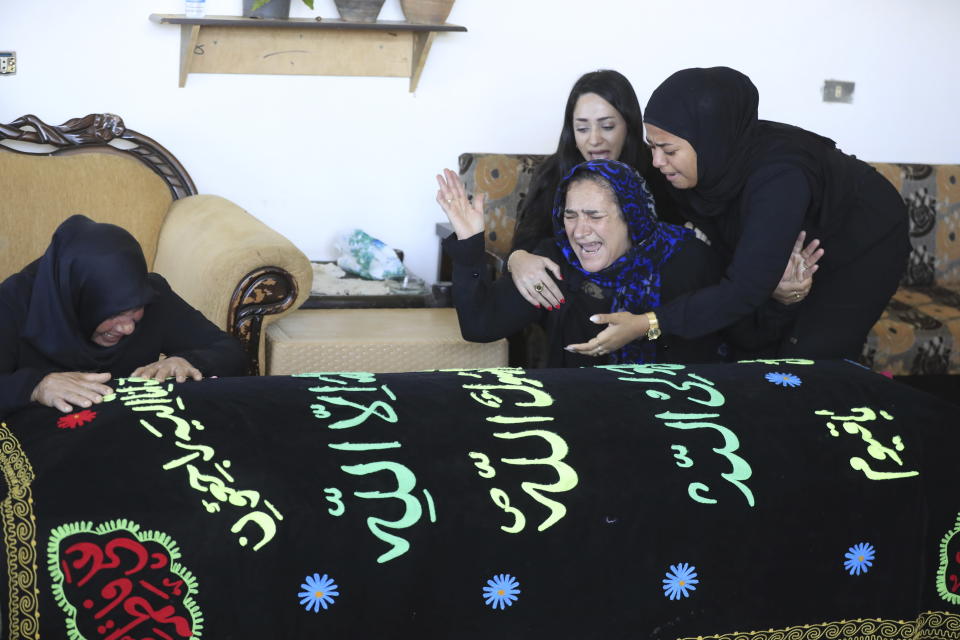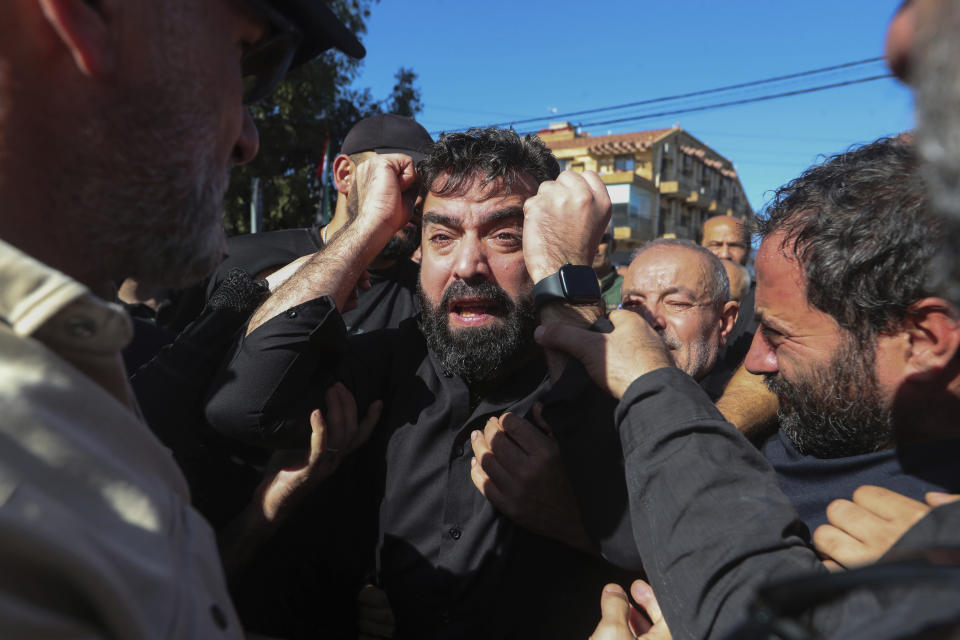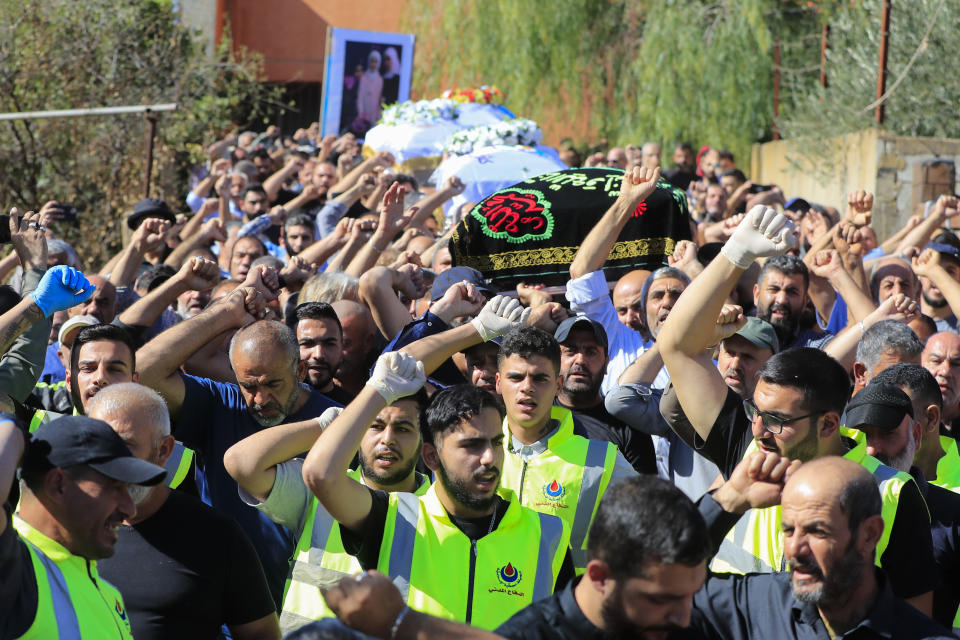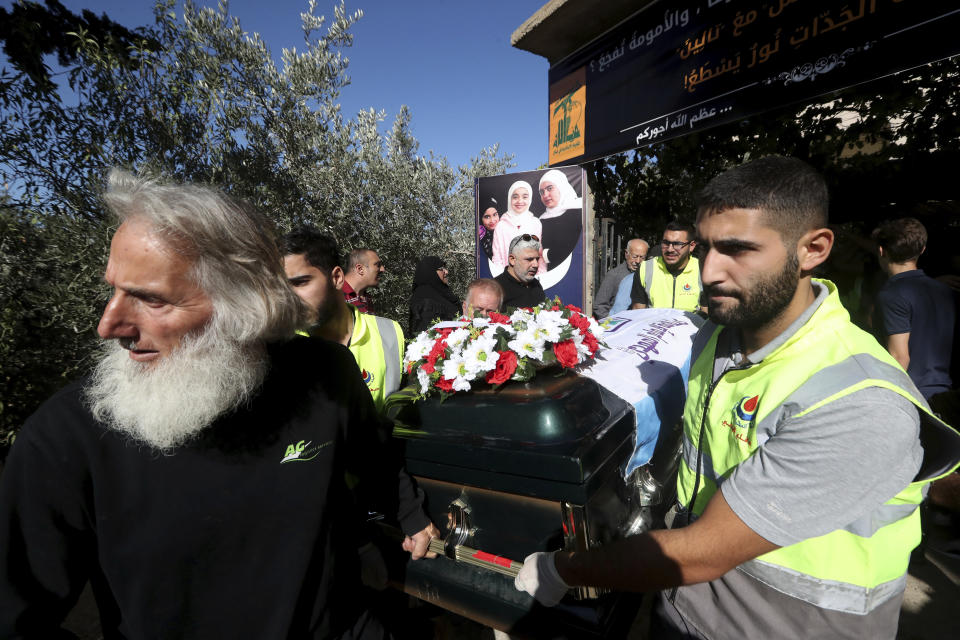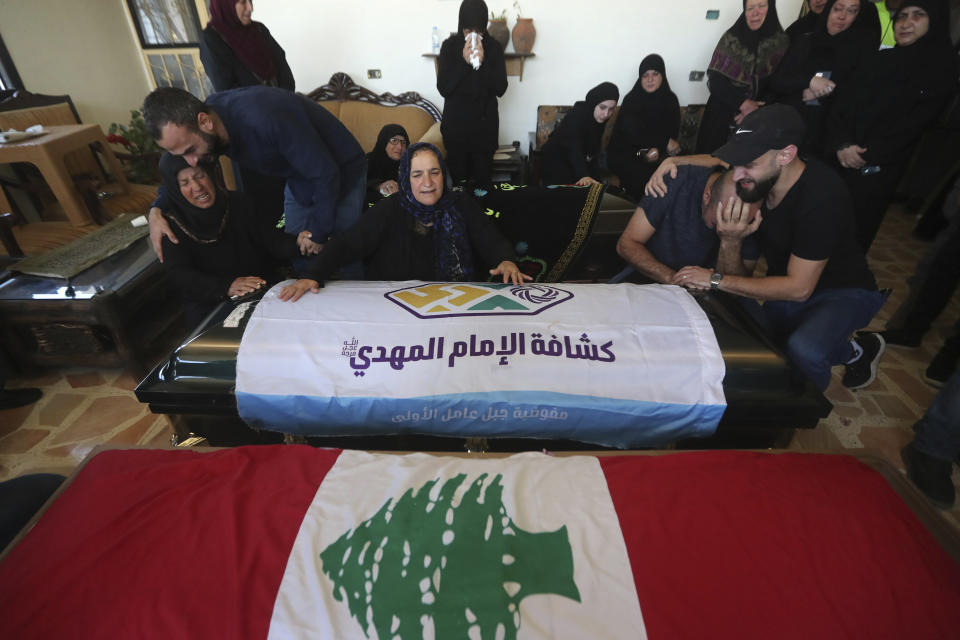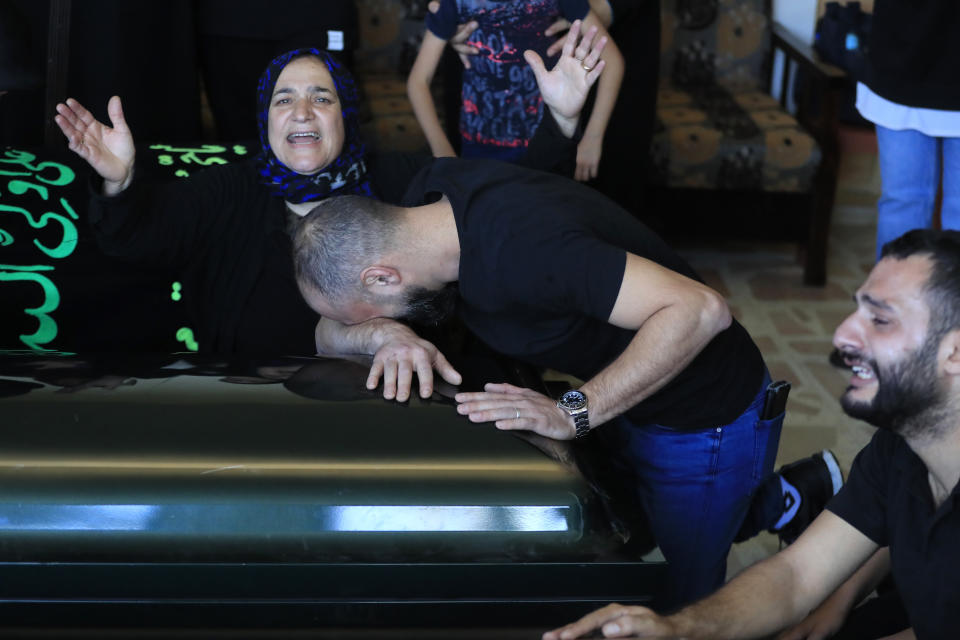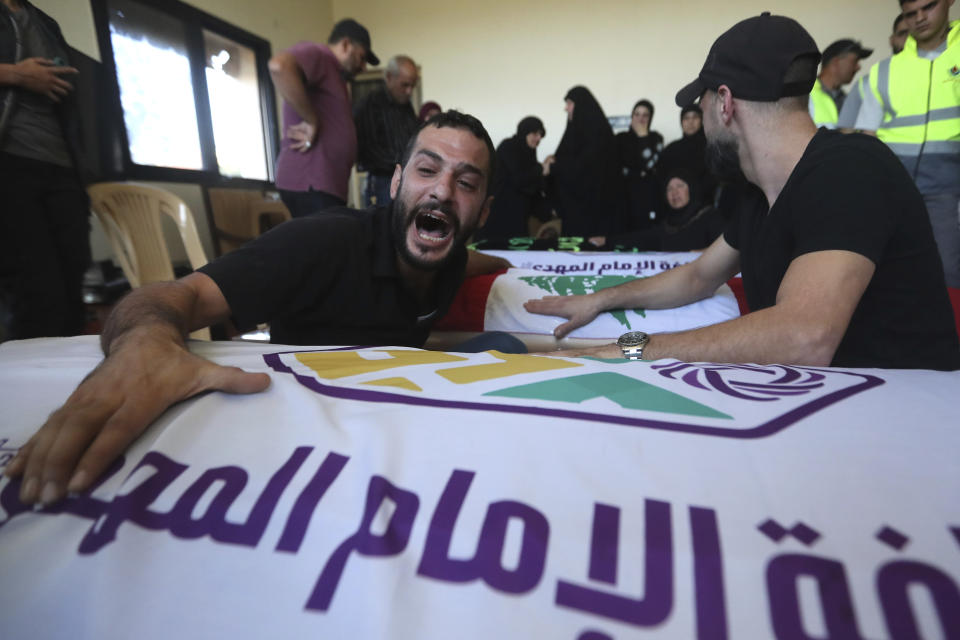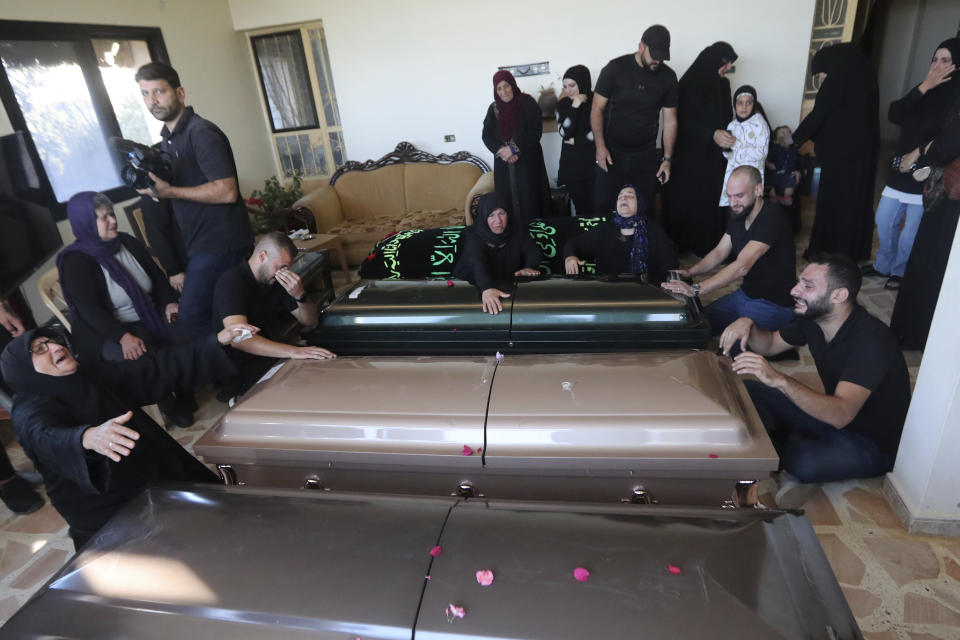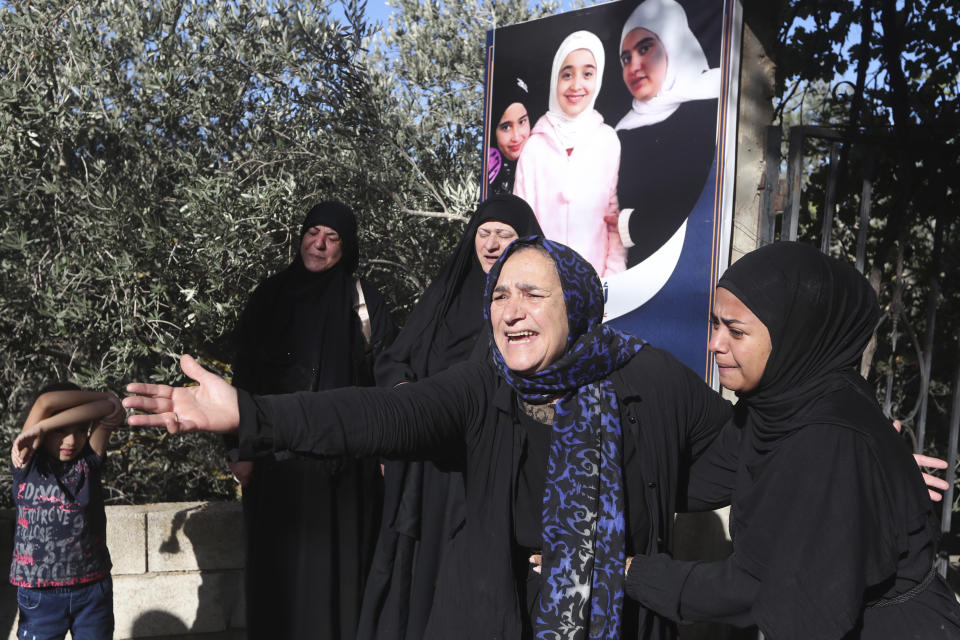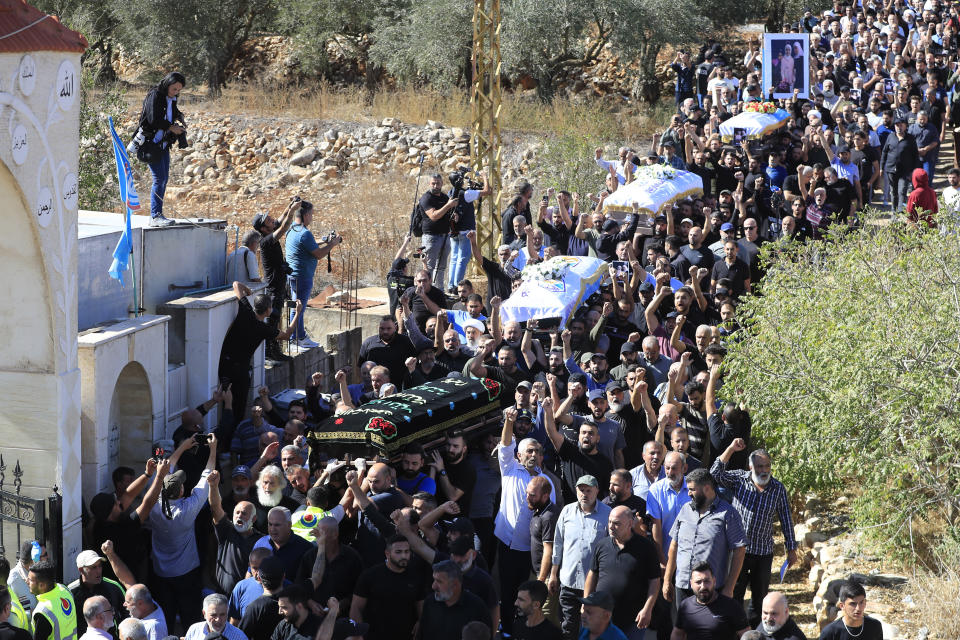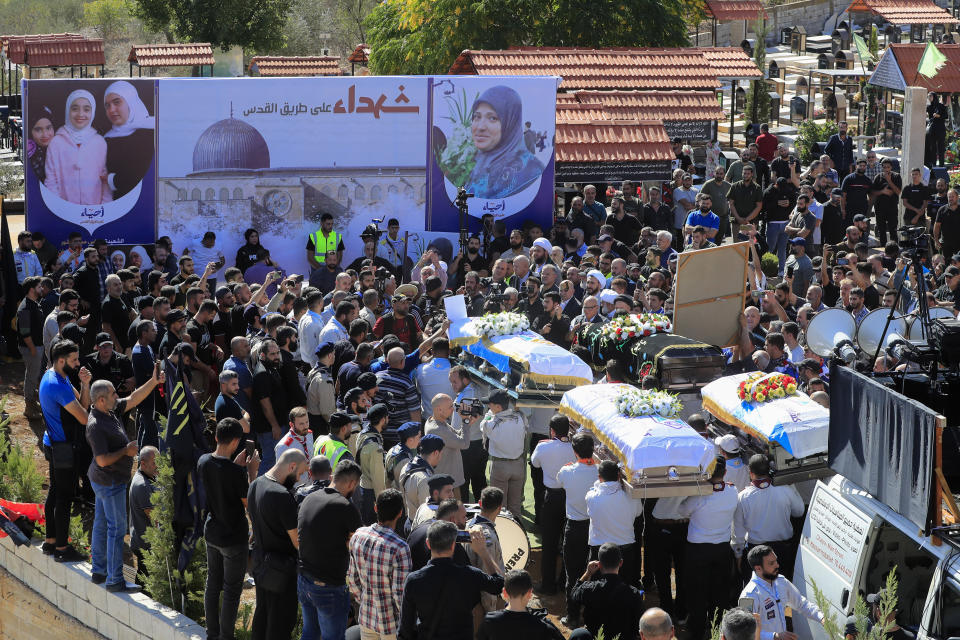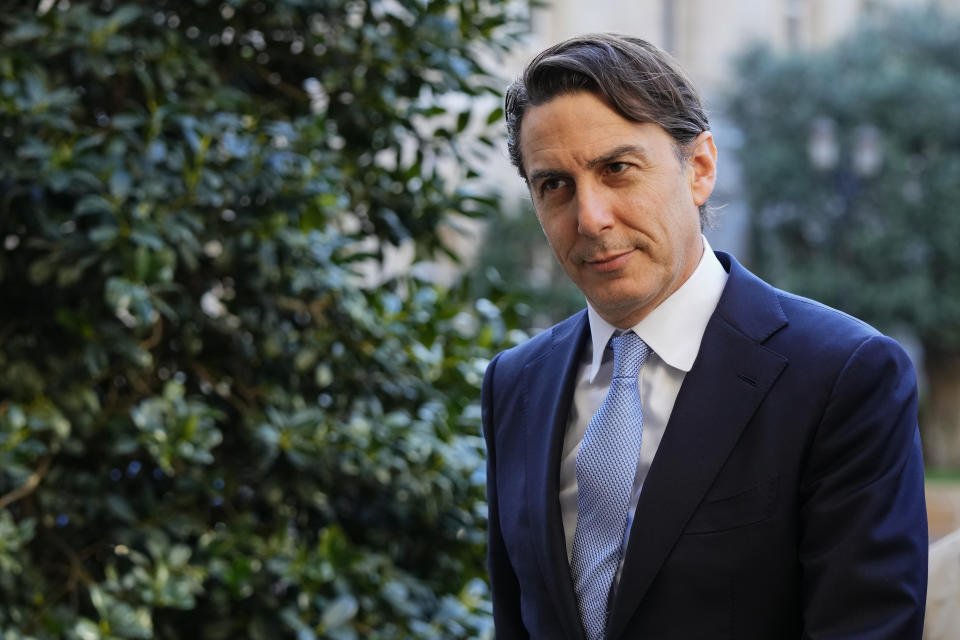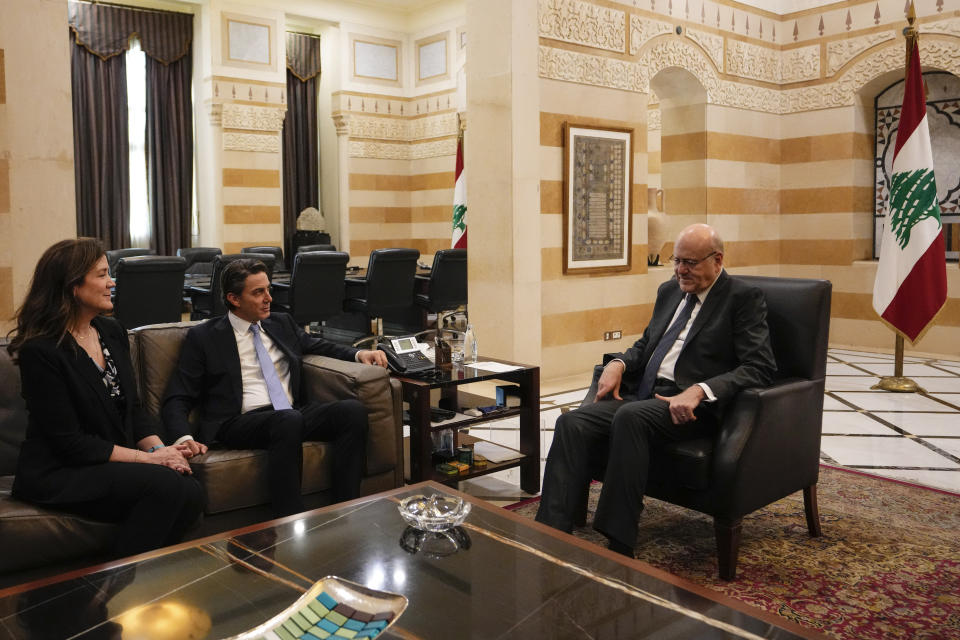US envoy flies to Beirut in a surprise visit, says Washington doesn't want Gaza war to expand
- Oops!Something went wrong.Please try again later.
- Oops!Something went wrong.Please try again later.
BLIDA, Lebanon (AP) — A top U.S. envoy said in Beirut Tuesday that Washington doesn't want the ongoing war in Gaza to expand to Lebanon after a Lebanese woman and her three granddaughters were killed in an Israeli strike two days ago.
The comments from Amos Hochstein, a senior adviser to U.S. President Joe Biden come during a previously unannounced visit to Beirut to discuss the volatile situation with Lebanon's parliament speaker and caretaker prime minister.
Hochstein told reporters after meeting Parliament Speaker Nabih Berri that restoring calm along Lebanon’s southern border is of “utmost importance.”
Hochstein said he heard Berri’s concerns over the tensions along the Lebanon-Israel border where fighters of the militant group Hezbollah and their allies have been exchanging fire with Israeli troops for about a month, after the Israel-Hamas war started on Oct.7, following the Palestinian militant group’s surprise attacks.
“The United States does not want to see conflict in Gaza escalating and expanding into Lebanon,” Hochstein said in a brief statement. He did not take questions from journalists.
Hochstein later met with Lebanon’s former intelligence chief, Abbas Ibrahim, who had negotiated hostage cases in the past. Ibrahim returned Monday from Qatar. The Gulf state has become a key intermediary over the fate of some 240 hostages held by Hamas.
Ibrahim said recently that he is playing a role in the hostage situation but refused to go into detail, adding that he is in contact with Hamas and U.S. officials.
Hochstein’s comments came as the Israeli military and Hezbollah exchanged fire on Tuesday following what Israel said was the targeting of one of its posts along the Lebanese border.
Hezbollah said in a statement it targeted artillery in northern Israel in retaliation for the Israeli drone strike late Monday on the outskirts of the southern village of Aramta, about 20 kilometers (12 miles) north of the border, and is a Hezbollah stronghold. The strike was one of the deepest inside Lebanon since the fighting along the border renewed.
The clashes along the border have intensified since Israel launched a ground incursion into Gaza against Palestinian militant group Hamas, an ally of Hezbollah.
On Sunday, an Israeli drone strike hit a civilian car killing the woman and her three granddaughters. Hezbollah retaliated by firing rockets at the northern Israeli town of Kiryat Shmona, killing one person.
In the southern village of Blida near the border, hundreds of men and women marched before the four coffins, draped in black and white banners, were carried Tuesday for burial in the local cemetery.
Large posters of Samira Abdul-Hussein Ayoub and her three granddaughters — Rimas Shor, 14; Talin Shor, 12; and Layan Shor, 10 — were displayed in the cemetery in the southeastern town of Blida. The three girls' mother, Hoda Hijazi, was wounded in the attack and is still undergoing treatment in a hospital.
Hezbollah officials have warned that if Israel kills Lebanese civilians, it will retaliate by attacking civilian targets.
“Protecting civilians is a main pillar of the rules of engagement with the enemy,” Hezbollah legislator Ali Fayad said during the funeral.
Israel considers the Iran-backed Shiite militant group its most serious immediate threat and estimates that Hezbollah has around 150,000 rockets and missiles aimed at Israel. The group also has different types of drones and surface-to-sea missiles.
Hamas' attack on Israel last month has left over 1,400 people dead while Israel's retaliatory war in Gaza has killed more than 10,000 Palestinians, according to the Hamas-run health ministry.
___
Chehayeb reported from Beirut. Associated Press writer Bassem Mroue contributed to this report.
